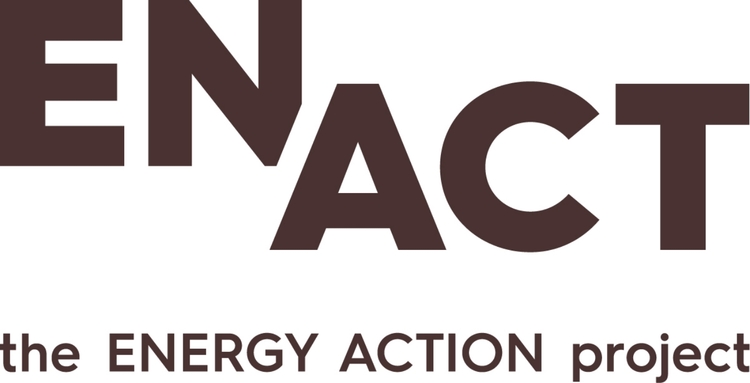The organisations and social movements that have signed this manifesto demand that Pedro Sánchez's government rectify the situation immediately and approve as soon as possible an indefinite extension of the ban of disconnections in the domestic sphere until the precautionary principle is included in Spanish legislation on energy poverty. We consider the new categorisation of vulnerable consumers established by the new Royal Decree Law 30/2020 to be insufficient.
If these demands are not met, it would mean that once again public administrations are neglecting the thousands of vulnerable families — hitting children and teens particularly hard — throughout the State who may suffer disconnections in their homes. Many of them have seen their incomes fall while their bills have increased during the confinement (as families have spent more time in their homes and the tasks of care or attention to the illness also require more energy) and are not being able to meet the payments.
Photo: ESF
A fact that seems to protect exclusively the utilities who, according to them, are faced with non-payments that they "have to absorb" and that this would be a problem since they cannot stop paying for the electricity system. These are false claims as they have generated a tariff system that protects them at the expense of everyone, proof of which is how they have established self-protection formulas such as how to cover energy losses that occur due to transmission, distribution, measurement errors and fraud. These losses, estimated at an average of 15% of the energy produced, are distributed among the users, who pay a percentage of them depending on their tariff. This seems to be an "insurance for losses" paid by the consumers; although, taking into account that according to the CNMC there has been an increase of fraud in its different modalities, which costs about 150 million euros per year to consumers and that mainly come from companies and large consumers, and to a much lesser extent (approximately 1%) from homes. In addition, many of these households, even though they have tried to regularise the supply because they want to pay their bills, have been refused by the big utility companies.
The ban of disconnections is a minimum measure and it is unacceptable that it should not be extended. Originally contained in Royal Decree Law 8/2020, it was decided in July to extend protection until 30 September and has not been renewed again. Although the Council of Ministers has given the green light for the extension of the coverage of the electricity social bond with the introduction of new assumptions, as it has already been stated on many occasions, the social bond is a measure that does not offer real solutions to people suffering from energy poverty, as many of them are still unable to pay their bills, despite having the corresponding discounts. Moreover, it does not cover gas and water bills, increasing the degree of unprotectedness of these families. In this sense, although the figure of the thermal social bond was introduced, the reality is that it is a very small single annual allocation (between 25 and 123.94 euros), subject to budgetary availability and which many people, despite carrying out the established procedures, have not been able to access to date.
Almost a year and a half ago, the Ministry for Energy Transition presented the National Strategy against Energy Poverty 2019-2024, which included the precautionary principle as one of the main measures to be promoted. This basically consists of imposing the impossibility of disconnecting until the utility company consults the economic situation of the affected family with the competent social services and it is certain that it is not a vulnerable family.
The undersigned organisations demand that until the precautionary principle is effectively established in the Spanish legislation on energy poverty, the ban of disconnections in the domestic sphere is also extended indefinitely, even more so when we are in the midst of a global pandemic and on the verge of a major social and economic crisis.
Leaving no one behind means guaranteeing supplies to every person and every family at the height of the pandemic. There is no decent housing without supplies. We demand facts and rights, not just words.
Organisations giving support
Activat+45
AeioLuz Cooperative
Affirmative
Aigua és Vida
ALLIANCE OF TIDES AND MOVEMENTS SOCIAL
Friends of the Earth
APE
Feminist Assembly of Madrid
Ecoserveis Association
Spanish Association for Environmental Education
Ateneu del Raval
ATTAC
Auzolanean Toulouse
Diverse Balearic Islands
CCOO
CECU
CGT
CIDES
Parad@s Terrassa Collective
Coordinadora Bolivia unida contra el golpe de Estado
Cospa
COSPA Pensioners Avilés
Ecologists in Action
Ecologists in Action La Rioja
Ecooo Solar Revolution
Ekologistak Martxan Bizkaia
Town/village/village/Herriarte
Erletxe. Irun Information and Social Agitation Office
Facua
FAVB (Federació d'Associacions Veïnals de Barcelona)
Feminists for Social Change
Feminists for Climate
FRAVM
Fridays for Future Madrid
Ecology and Development Foundation
Icaria editorial
Mothers for Climate
Marea Pensionista (COESPE)
Moviment per l'Aigua Pública i Democràtica a l'AMB (MAPiD)
MUNIMADRID FUNCTIONAL DIVERSITY
ODS-Coia (Oficina Dereitos Sociais -Coia)
PAH
PAH GRANOLLERS
Pah Oviedo
Pensioners of Móstoles
Pensioners XLA SOCIAL DIGNITY
Pertsonala
Pensioners' Platform of Cordoba
Dos Hermanas Pensioners' Platform
Platform in defence of public pensions Estella
Chamberí Pensioners' Platform
Platform for a New Energy Model
Vallecana Platform XLA SOCIAL DIGNITY
Platoniq, Creativity and Democracy
Public Water Network (RAP)
Aragon Public Water Network
Women's Network for an Ecofeminist Energy Transition
Ecofeminist Network
Sindicat co.bas comissions de base
We are Tribe
STEI Inter-Union
STEILAS
Bidasoa StopEvictions
TRADENER
General Workers' Union
UPLA-LA UNION
USE
Trans Vision
XR Barcelona Rebel-lió per la Justícia Global
Yayoflautas Madrid
Zambra Malaga



